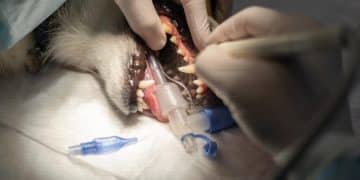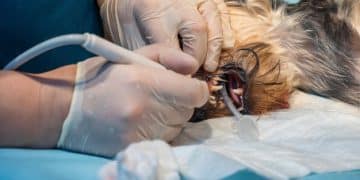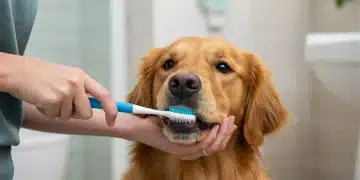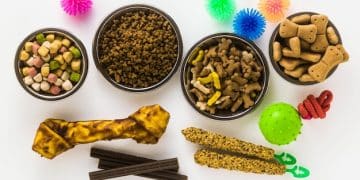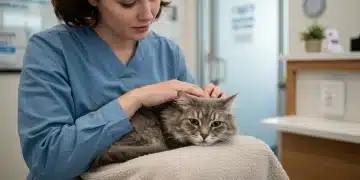Avoid These 5 Pet Dental Care Mistakes Costing Owners Hundreds
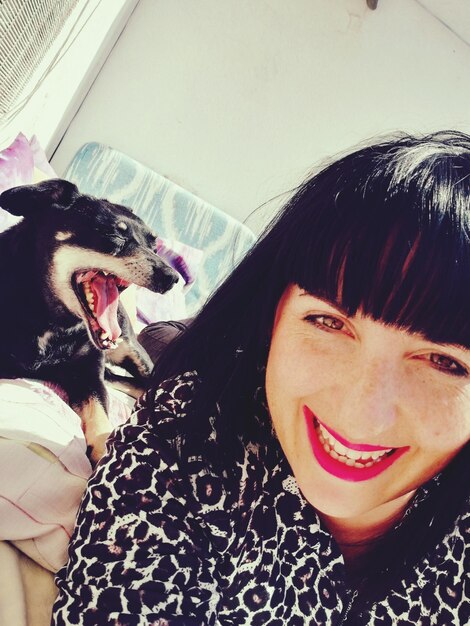
Avoid these five common pet dental care mistakes: neglecting regular check-ups, skipping professional cleanings, ignoring bad breath, overlooking diet’s impact, and using the wrong dental products, all of which can lead to costly health issues.
Good dental hygiene is as important for pets as it is for humans, but many owners unknowingly make mistakes that can lead to serious health problems and hefty veterinary bills. Avoid these 5 common pet dental care mistakes that cost owners hundreds, and keep your furry friend smiling bright.
Neglecting Regular Dental Check-ups
Just like humans, pets need regular dental check-ups to ensure their oral health. Many pet owners believe that if their pet seems fine, there’s no need to visit the vet specifically for dental care. However, this couldn’t be further from the truth.
Skipping these essential vet visits can lead to undetected problems that escalate over time. Let’s dive into why these check-ups are so vital.
Why Regular Check-ups Matter
A veterinarian can spot early signs of dental disease that you might miss at home. These could include subtle inflammation, early tartar buildup, or even the beginning stages of gum disease. Early detection allows for timely intervention, preventing more serious issues down the line
What to Expect During a Check-up
Typically, a dental check-up involves a thorough examination of your pet’s mouth. The vet will look for signs of gum disease, tooth decay, and any abnormalities. They might also check for oral tumors or cysts. In some cases, X-rays may be necessary to get a better view of what’s happening beneath the gum line.
- Early detection of dental issues.
- Professional cleaning recommendations.
- Personalized advice for at-home dental care.
- Identification of potential underlying health issues.
Scheduling regular dental check-ups is a proactive step in ensuring your pet’s overall health. It not only prevents costly dental procedures but also contributes to their well-being and quality of life.
Skipping Professional Dental Cleanings
While at-home care is important, it’s not a substitute for professional dental cleanings. Many pet owners rely solely on brushing their pet’s teeth, thinking that they’re doing enough. However, professional cleanings go beyond what you can achieve at home.
These cleanings are essential for removing stubborn plaque and tartar that can only be tackled with specialized tools.
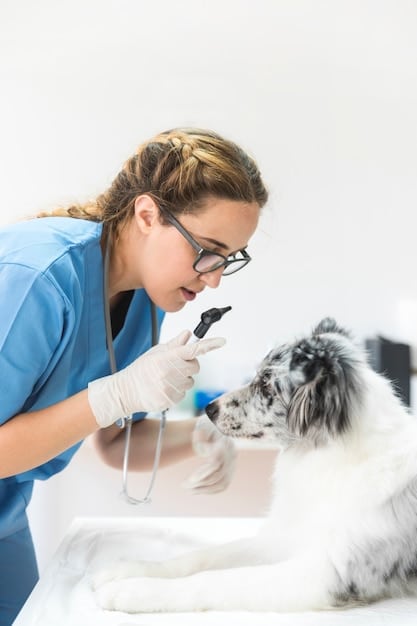
The Importance of Professional Cleaning
Professional dental cleanings, often performed under anesthesia, allow the vet to thoroughly clean your pet’s teeth, including areas that are difficult to reach at home. This process removes hardened tartar and plaque buildup, which can lead to gum disease and tooth decay.
Anesthesia and Pet Safety
The thought of putting a pet under anesthesia can be daunting, but it’s a necessary part of a thorough dental cleaning. Vets take precautions to ensure the safety of your pet, including pre-anesthetic blood work to assess their organ function. During the procedure, your pet will be closely monitored to avoid complications.
- Removal of stubborn tartar and plaque.
- Prevention of gum disease and tooth decay.
- Opportunity for thorough oral examination under anesthesia.
- Improved overall health and well-being of your pet.
Professional dental cleanings, though they may seem costly upfront, are a vital investment in your pet’s long-term health. They prevent serious dental issues that can require extensive and expensive treatments later on.
Ignoring Bad Breath (Halitosis)
Bad breath in pets is often dismissed as “dog breath” or “cat breath,” but it’s usually a sign of underlying dental issues. Many owners may think it’s normal for their pet’s breath to smell unpleasant, but this couldn’t be further from the truth.
Ignoring persistent bad breath can lead to overlooked dental problems that can cause pain and discomfort for your pet.
What Causes Bad Breath?
Persistent bad breath, or halitosis, is typically caused by a buildup of bacteria in the mouth. This bacteria thrives on plaque and tartar, leading to the release of foul-smelling compounds. In some cases, bad breath can also be a sign of more serious health issues, such as kidney disease or diabetes.
When to Seek Veterinary Attention
If your pet’s bad breath persists despite regular brushing, it’s time to consult your vet. They can determine the underlying cause of the halitosis and recommend appropriate treatment. This might involve a professional dental cleaning, antibiotics, or further diagnostic tests to rule out other health problems.
- Persistent bad breath indicates underlying dental or health issues.
- Ignoring bad breath can lead to overlooked dental problems.
- Veterinary attention is needed if bad breath persists despite regular brushing.
- Treatment might involve professional cleaning or further diagnostic tests.
Addressing bad breath early can help prevent serious dental complications and promote better overall health for your pet. It’s an essential step in ensuring their comfort and well-being.
Overlooking Diet’s Impact on Dental Health
Diet plays a significant role in your pet’s dental health. Many pet owners aren’t aware of how certain foods can contribute to or prevent dental issues. Choosing the right diet can make a big difference, so it’s important to know what to look for.
The food you choose for your pet can affect the buildup of plaque and tartar, as well as their overall oral hygiene.
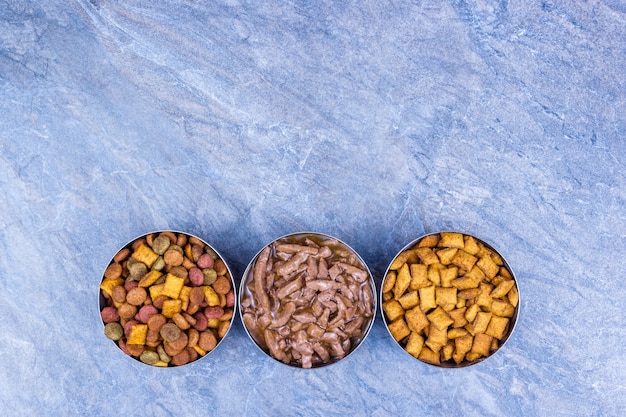
The Role of Dry vs. Wet Food
Dry food is generally better for dental health than wet food. The abrasive texture of dry kibble helps to scrape away plaque and tartar as your pet chews. Wet food, on the other hand, can stick to the teeth, promoting bacteria growth and tartar buildup.
Dental-Specific Diets and Treats
There are specially formulated dental diets and treats designed to promote oral hygiene. These products often contain ingredients that help to reduce plaque and tartar buildup. They also come in shapes and textures that encourage chewing, which can further aid in cleaning the teeth.
- Choose dry food over wet food for better dental health.
- Opt for dental-specific diets and treats.
- Avoid sugary or sticky treats that can contribute to plaque buildup.
- Consult your vet for personalized dietary recommendations.
Making informed choices about your pet’s diet can have a significant impact on their dental health. By selecting the right foods and treats, you can help to prevent dental issues and maintain their oral hygiene.
Using the Wrong Dental Products
Choosing the right dental products for your pet is crucial for effective at-home dental care. Many pet owners simply grab the first toothbrush and toothpaste they see, without considering whether it’s appropriate for their pet.
Using the wrong products can be ineffective and, in some cases, even harmful to your pet’s health.
Choosing the Right Toothbrush and Toothpaste
Human toothpaste should never be used on pets, as it contains ingredients that can be toxic to them. Instead, opt for toothpaste specifically formulated for pets, which comes in flavors that they enjoy. As for toothbrushes, there are many options available, including finger brushes and brushes with angled heads for easier access.
Safe and Effective Dental Chews
Dental chews can be a great addition to your pet’s dental care routine, but it’s important to choose safe and effective options. Avoid chews that are too hard, as they can damage your pet’s teeth. Look for chews that are specifically designed to promote dental health and have been tested for safety.
- Never use human toothpaste on pets.
- Choose toothpaste and toothbrushes specifically designed for pets.
- Select safe and effective dental chews.
- Avoid products with harmful ingredients or textures.
Using the right dental products can make at-home dental care more effective and enjoyable for both you and your pet. It’s an essential part of maintaining their oral health and preventing costly dental problems.
| Key Point | Brief Description |
|---|---|
| 🦷 Dental Check-ups | Regular visits prevent serious dental issues. |
| 🪥 Professional Cleanings | Remove plaque and tartar that brushing can’t. |
| 🐾 Diet Choices | Dry food and dental treats support oral hygiene. |
| 🤢 Addressing Bad Breath | Persistent bad breath might signal deeper problems. |
FAQ
▼
Ideally, you should brush your pet’s teeth daily. However, if daily brushing isn’t feasible, aim for at least a few times a week to help prevent plaque and tartar buildup.
▼
Yes, dental chews can be effective at reducing plaque and tartar. Look for chews specifically designed for dental health and approved by your veterinarian for safety and effectiveness.
▼
Signs of dental disease include bad breath, excessive drooling, difficulty eating, red or swollen gums, and loose or missing teeth. Consult your vet if you notice any of these symptoms.
▼
The frequency of professional dental cleanings depends on your pet’s individual needs. Some pets may need cleanings every six months, while others may only need them once a year. Your vet can recommend a schedule based on your pet’s dental health.
▼
Yes, diet plays a significant role. Dry food and dental treats can help scrape away plaque and tartar, promoting better oral hygiene. Avoid sugary and sticky treats that contribute to plaque formation.
Conclusion
By being aware of these common pet dental care mistakes, you can take proactive steps to ensure your furry friend enjoys a lifetime of healthy smiles. Regular check-ups, professional cleanings, proper diet, effective at-home care, and attention to bad breath are all key components of comprehensive dental care for pets.
